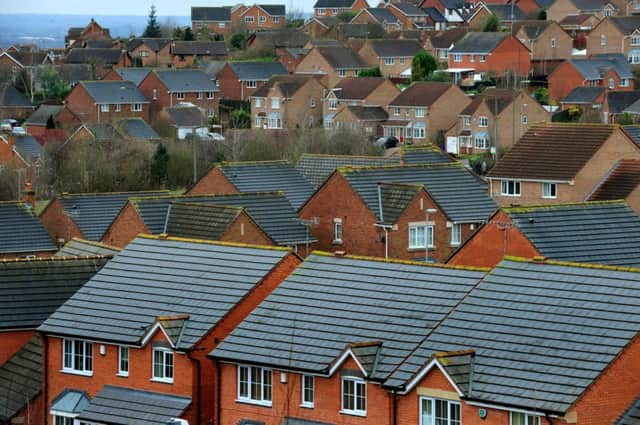Building up to the new year


The strength of the recovery seen last spring, when a wave of pent-up demand from home buyers was unleashed onto the market, took many pundits by surprise.
As consumer confidence grew in the economy, buyers started to feel more confident about taking the plunge. And with widened access to mortgages, which were both cheap in the low interest rate environment and were available to people with only low deposits saved on the back of schemes such as Help to Buy, some people who may have previously struggled to get a home loan found they now could get a deal.
Advertisement
Hide AdAdvertisement
Hide AdSoon, we started to get headlines about house prices hitting new record highs.
Experts said that behind the strong push-up in property prices, there was an imbalance between the high volumes of house hunters and the lack of homes on the market for them to choose from.
According to a house price study run by Nationwide Building Society, typical UK house prices surpassed their 2007 peak in cash terms in May this year and they continued to hit a run of new records in the months that followed.
A separate house price report run by the Office for National Statistics (ONS) has also recorded property values reaching record highs in 2014.
Advertisement
Hide AdAdvertisement
Hide AdThe London market has been seen as the driver of much of this. Figures from the Land Registry have shown that in some London boroughs, property prices have leapt by almost 30% in the space of only a year.
But in the second half of this year, the focus has moved away from London, which has been seeing something of a cool-off following the fierce period of price growth, as people look for value beyond the capital. Other places which have seen property values surge by more than 10% this year compared with a year earlier have included Bristol, Hertfordshire, Milton Keynes, Surrey, Reading and Slough, according to the Land Registry’s data.
There have also been some bumps along the way during 2014. Stricter mortgage lending rules were introduced in April, under the Mortgage Market Review (MMR), which force lenders to ask both home buyers and people looking to remortgage more thorough questions about their spending habits. This is to make sure that borrowers will be comfortable with their mortgage repayments, both now and when interest rates start to rise.
In recent months, there has also been evidence that home buyers are starting to become more “price sensitive” when they’re considering sellers’ asking prices.
Advertisement
Hide AdAdvertisement
Hide AdSeveral reasons have been suggested for this recent mood change, including that buyers are perhaps reaching the ceiling of what they can afford to pay and also that they are bearing in mind how the Bank of England base rate is expected to start climbing from its 0.5% low at some point in the coming months, eventually pushing up mortgage costs.
There have also been reports of fewer buyers coming to market in recent months, which has created a more even balance between the number of homes for sale and the number of house hunters to potentially buy them. Basically, with fewer people competing for homes, this has put less upward pressure on house prices.
:: But could the mood be set to change again in 2015? In the Autumn Statement, the UK Government announced a complete overhaul of how the stamp duty people pay when they buy a home is charged.
The much-criticised “slab” structure of stamp duty, where the cost goes up sharply in steps which are based around the price paid for a property, has been replaced with a graduated stamp duty structure, similar to income tax.
Advertisement
Hide AdAdvertisement
Hide AdSome 98% of people who pay stamp duty will see the amount they pay cut as a result, the Government has said
Estate agents are predicting this move could create a New Year bounce in housing market activity.
Halifax recently predicted that UK house prices generally will edge up by between 3-5% across next year, which would be a more modest increase than the double-digit year-on-year growth seen during the summer of 2014.
Halifax expects the stamp duty overhaul to prompt a “modest boost” to house sales, but overall, its 3-5% price increase prediction is unaffected by the change.